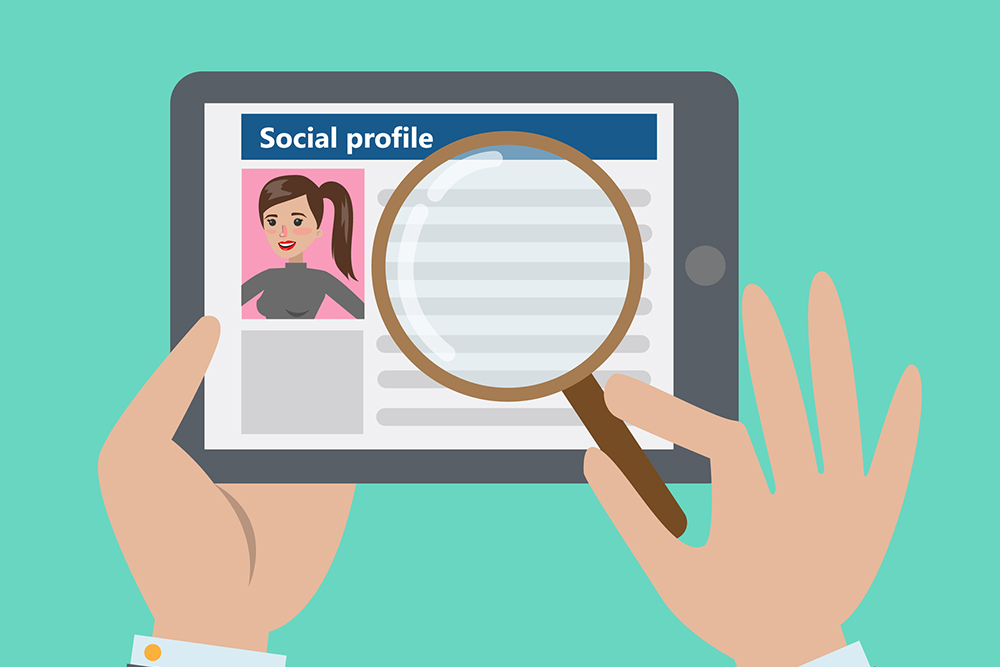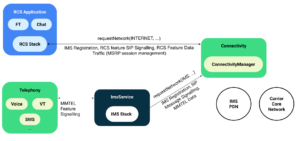A basic understanding of the social media background checks process is essential for employers who want to keep their business safe for employees. It’s also crucial for the person doing the background check to know what to expect, how long it will take, and what the results are.
Using social media for background checks has become a common practice for employers. It can be a quick and easy way to verify a candidate’s social media skills. However, there are some basic rules to follow in conducting a social media background check.
First, make sure you don’t violate state or local laws. For example, many jurisdictions have passed laws restricting access to social media. Also, remember that social media activity can be a good indicator of a candidate’s job-related behavior. However, remember that it can also be a bad sign. Some red flags include offensive comments, illegal activities, and sexually explicit materials.
Another thing to consider is the best way to perform a social media background check. You can search for a candidate’s social media posts and look up their name on Google. You can also search for news articles about the candidate.
You can also look up the candidate’s connections on LinkedIn. This is an excellent way to learn about their professional life, and it’s also a way to check whether they have any job-related links. You can also reach out to a candidate’s connections for a quick message. However, you must have a pre-existing relationship to do this.
Whether you’re just getting started or you’ve already established a solid background check process, incorporating social media into your search is essential. Social media provides you with a wealth of information about a candidate. Unfortunately, while this can be an excellent tool for job hunting, it can also be a source of risk.
Whether conducting your own social media background checks or hiring a third party, you want to ensure that you have an unbiased perspective. That means avoiding information that isn’t accurate or relevant and avoiding information that may be illegal or discriminatory.
For example, you could have adverse information about a candidate from as far back as ten years ago. However, that information may not be pertinent to the job you’re hiring for and may allow the person to perform their job.
On the other hand, if you’re only relying on publicly available information, you’re missing out on information that could be critical. For example, a simple Google search for a candidate can reveal publications, news stories, and even social media links.
Performing basic social media background checks can be an essential part of hiring. But it’s vital to ensure that the process is done correctly. Failure to do so can cause harm to your business’s reputation.
Performing a social media background check should include a thorough review of the candidate’s social media profiles. This will provide insight into the applicant’s interests and behavior. It will also help to spot potential red flags. The results should be discussed internally, and if any issues arise, they should be raised with the candidate.
New systems are available that make it easier for employers to conduct comprehensive social media background checks. These systems use automated processes with human oversight. This combination can help to increase identification accuracy and review critical cases.
While many people use social media to share their personal information, this information is only sometimes accurate. It can also be challenging to find since many people have accounts on many different sites.
Professional social media checks use advanced smart-search technologies and behavior analysis tools to comprehensively review a candidate’s social media profiles. They can also identify intangible qualities that traditional pre-employment checks may miss. They can also provide an alternative to a criminal record check.
Using Instagram to conduct a background check can yield a lot of results. Seventy-six percent of employers surveyed said they had checked the social media accounts of a prospective hire. The process is more complex, though. A background check will require a candidate’s permission and access to their social media accounts. The best approach is to automate the process with software to make the process easier for both the employer and the employee. For example, a software program can scan prospective employees’ social media profiles, weed out the duds, and provide a comprehensive report on their social media activities. One caveat, though: there are no guarantees that the results will be positive or negative. For example, prospective hires could be subject to discrimination should they opt to check their social media profiles on a public platform. The most apparent thorn in the side is the prospect of being blackballed from employment should their social media profiles reveal a glaring negative. Thankfully, this is a rare occurrence.
State and local laws
Whether your company is performing a background check on a prospective employee or you’re simply using social media to recruit applicants, it’s essential to understand how state and local laws affect the process. Not only are state and local laws relevant to criminal background checks, but they can also affect the types of information that can be accessed.
In addition to state and local laws, it’s important to understand federal laws relating to using social media for employment decisions. For example, federal statutes protect the privacy of individuals, and targeted advertising on social media may be a violation.
In addition, the Fair Credit Reporting Act requires that an employer obtain written consent before conducting a background check on an applicant. Finally, social media background checks come with their own set of ethical concerns.
If an employer does not follow the Fair Credit Reporting Act, they may be liable for negligent hiring or retention. Alternatively, an employer may be responsible for discrimination if they hire an employee based on protected characteristics that were not disclosed in the resume.






More Stories
Top 10 Electronic Rock Bands Transforming the Music Scene
How to Effectively Remove ChocoEukor from Your Android Device
High-Quality Collection of Animated Booting Gifs